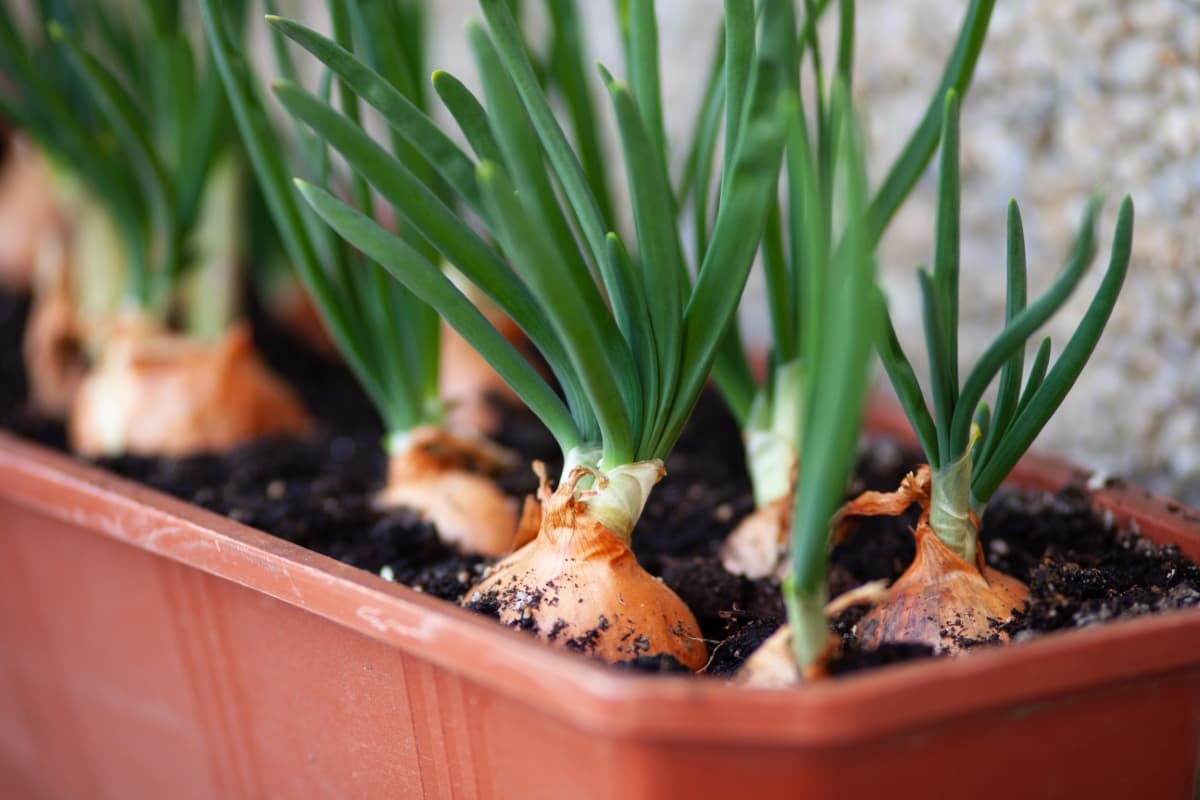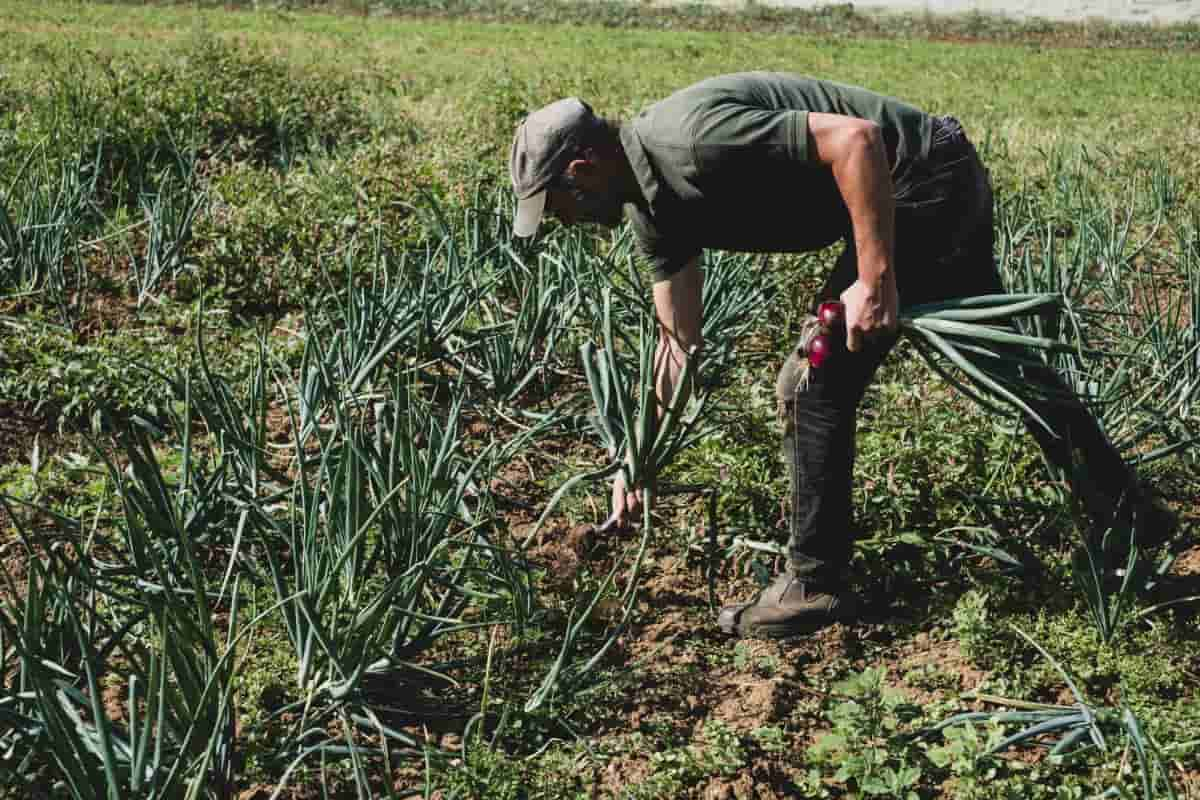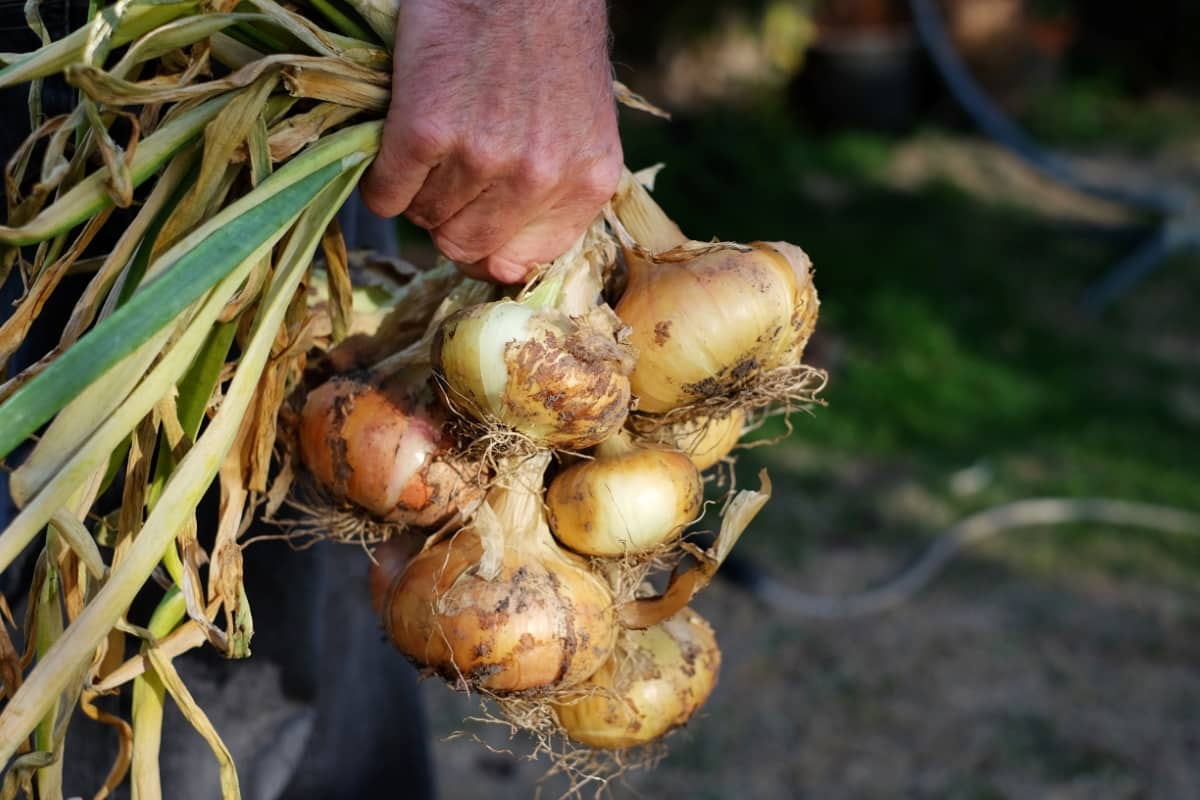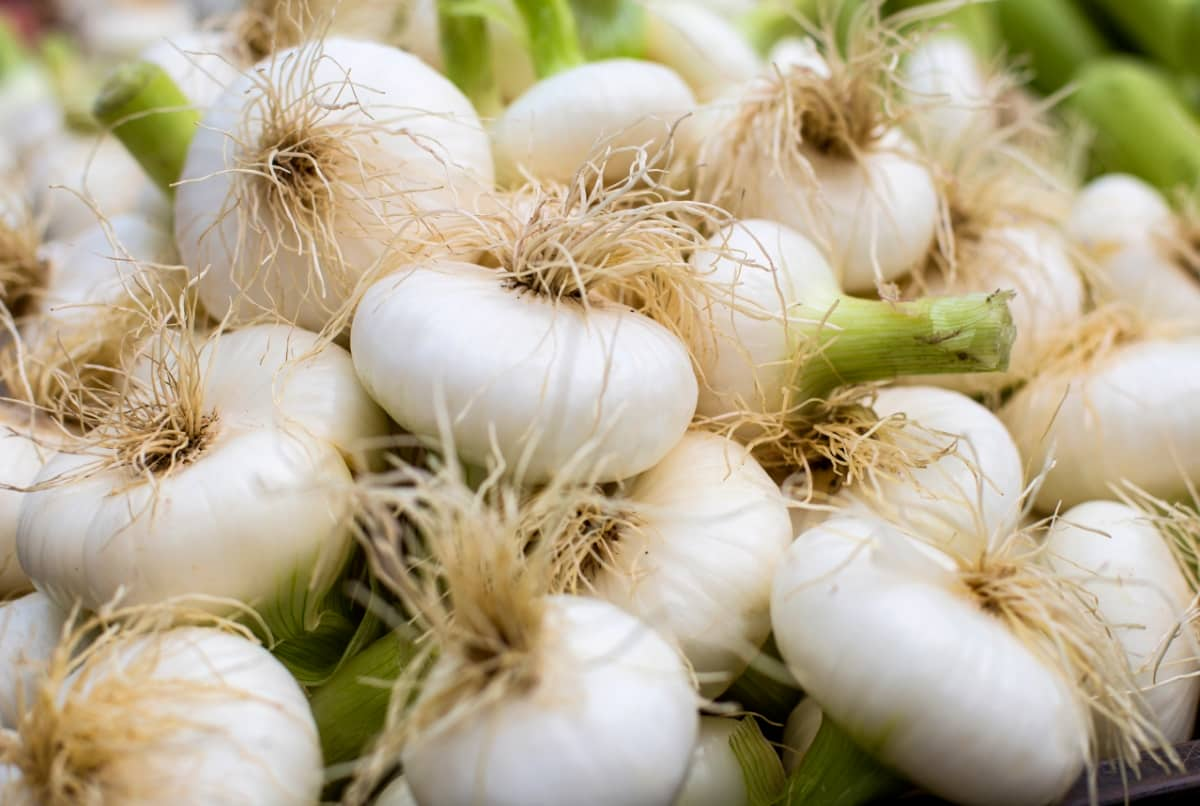Onion rot is a common issue for gardeners, often leading to the question, why are my onions rotting in the ground? Understanding and combating this problem requires knowledge of its causes and symptoms and the use of organic and natural treatments.

With an emphasis on sustainable practices like integrated pest management and using onions as a pesticide, one can effectively control onion diseases like white rot, onion root rot, and onion blight. This article explores various natural solutions to prevent onion rot, focusing on organic and environmentally friendly approaches.
How to Prevent Onion Rot Naturally
Causes and Symptoms of Onion Rot
Onion rot, particularly white rot, is a fungal disease that can devastate onion crops. The first signs include wilting leaves and a white, fluffy fungus near the base of the plant, often accompanied by black sclerotia. Root systems become soft and decay, hindering the plant’s ability to absorb nutrients. Poor soil conditions, excessive moisture, and inadequate crop rotation often exacerbate the issue. Recognizing these symptoms early is crucial for effectively managing and preventing further spread.
Organic Methods for Controlling Onion Rot
Organic farming emphasizes natural methods for pest and disease control. In the case of onion rot, crop rotation, and proper soil management are key. Rotating crops helps to disrupt the life cycle of pathogens. Enriching soil with organic matter improves drainage, reducing the risk of waterlogging, a common cause of rot. Using white rot-resistant onion varieties can also significantly reduce the incidence of disease. Additionally, practicing integrated pest management by attracting beneficial insects can keep onion-eating pests at bay.
Effective Natural Treatments for Preventing Onion Rot
Natural treatments for onion rot include compost teas and biocontrol agents. Compost tea, rich in beneficial microorganisms, can suppress fungal pathogens causing rot. Applying mulch helps maintain soil moisture levels and temperature, creating less favorable conditions for the fungus. Moreover, applying natural fungicides, like those made from neem oil, can effectively control fungal growth without harming beneficial soil organisms.
How to Prevent Onion Rot Using Organic and Environmentally Friendly Solutions
Prevention is always better than cure, especially in organic gardening. To prevent onion rot, ensure good air circulation around plants by spacing them adequately and regularly weeding. Avoid overhead watering to reduce leaf wetness, contributing to fungal diseases. Implementing companion planting, where onions are grown alongside plants that repel pests or improve soil health, can also be an effective strategy. Above all, maintaining a healthy garden ecosystem is key to preventing onion rot.
In case you missed it: How to Prevent Berry Fruit Rot Naturally: Best Ways to Control with Natural and Organic Treatment

How to Protect Your Onions from Rot Naturally
Protecting onions from rot naturally involves a combination of good cultural practices and natural remedies. Regular monitoring of the crop for early signs of disease is essential. Employing barriers or row covers can prevent the entry of pests that might introduce rot-causing pathogens. Soil amendments, such as well-composted organic matter, can improve soil health and resistance against diseases. Using an onion as a pesticide, a method in which onion extracts are used to repel pests, can also be beneficial.
Sustainable Approaches to Preventing Onion Rot
Sustainability in gardening focuses on maintaining long-term soil health and ecological balance. Using resistant varieties and practicing crop rotation are sustainable strategies to manage onion rot. Encouraging biodiversity in the garden by planting a variety of species creates a more resilient ecosystem. Utilizing organic mulches and natural fertilizers, like compost, improves soil structure and enhances its ability to suppress diseases. Embracing these sustainable practices can prevent onion rot and ensure a healthy, productive garden.
How to Prevent Onion Rot Organically
To prevent onion rot organically, start by selecting disease-resistant varieties and practicing crop rotation, disrupting the soil’s disease cycle. Soil health is crucial; enhance it with organic compost to improve drainage and reduce moisture-related issues. Employ integrated pest management strategies by encouraging beneficial insects and using barriers to protect against pests.
In case you missed it: How to Prevent Pomegranate Fruit Rot Naturally: How to Control with Natural and Organic Treatment

Apply organic mulches to regulate soil temperature and moisture, and consider using onions as a pesticide, leveraging their natural repellent properties. Regularly inspect your onions for early signs of rot and remove affected plants immediately to prevent spread. Water at the base of the plants to avoid wetting foliage, as damp leaves can attract fungal diseases. Using these organic methods creates a healthy environment that naturally minimizes the risks of onion rot.
Eco-Friendly Strategies for Controlling Onion Rot
Eco-friendly strategies for controlling onion rot focus on sustainable practices that maintain ecological balance. Employ companion planting, which enhances biodiversity and naturally repels pests. Utilize natural remedies such as compost teas and neem oil-based fungicides to combat fungal pathogens without harming beneficial organisms.
Prioritize proper spacing and air circulation around plants to reduce humidity levels, a key factor in rot development. Practice water conservation techniques, like drip irrigation, to provide moisture directly to the roots while keeping foliage dry. By adopting these eco-friendly strategies, gardeners can effectively control onion rot while preserving the environment.
Holistic Approaches to Preventing Onion Rot
Holistic approaches to preventing onion rot involve a comprehensive plan that integrates soil health, plant health, and environmental considerations. Focus on building a resilient ecosystem in your garden by fostering biodiversity through mixed planting and attracting beneficial wildlife. Implement soil improvement practices such as regular additions of organic matter and balanced natural fertilizers.
In case you missed it: How to Prevent Bottle Gourd Fruit Rot Naturally: How to Control with Natural and Organic Treatment

Embrace permaculture principles, designing your garden layout to maximize natural advantages and minimize disease spread. Practice mindful watering techniques and ensure good air circulation to reduce excess moisture and humidity around the plants. Educate yourself about the signs of onion rot and other related diseases to take timely action. By adopting a holistic approach, gardeners can create a harmonious and healthy garden environment that naturally reduces the risk of onion rot.
Conclusion
Preventing onion rot requires organic practices, eco-friendly strategies, and a holistic mindset. By understanding and respecting the natural balance of the garden ecosystem, gardeners can effectively manage onion rot. Key strategies include implementing crop rotation, improving soil health, using disease-resistant varieties, and adopting integrated pest management.
Embracing eco-friendly solutions and a holistic approach ensures not only the health of onion crops but also contributes to the overall sustainability and biodiversity of the garden. With these practices, gardeners can enjoy healthy, rot-free onions while contributing positively to the environment.
- Feed Your Flock for Less: Top 10 Tips to Save on Chicken Feed
- Ultimate Guide to Ossabaw Island Hog: Breeding, Raising, Diet, and Care
- Hatching Answers: The Top 10 Reasons Your Chickens Aren’t Laying Eggs
- Eggs and Economics: Breaking Down the Cost of Raising Backyard Chickens
- Defend Your Greens: Proven Methods to Keep Iguanas Out of Your Garden
- Ultimate Guide to Cinnamon Queen Chicken: A Comprehensive Guide for Beginners
- Ultimate Guide to California Tan Chicken: Breeding, Raising, Diet, Egg-Production and Care
- Ultimate Guide to Marsh Daisy Chicken: Breeding, Raising, Diet, and Care
- 10 Types of Chicken Farming Businesses You Can Start for Profits